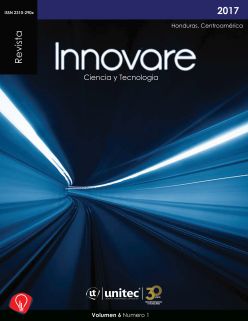UNITEC Students' Knowledge about Breast Cancer and its Early Detection Using Self-Assessment
DOI:
https://doi.org/10.5377/innovare.v6i1.4949Keywords:
Breast cancer, prevention, public health, university students, health sciences departmentAbstract
The incidence of breast cancer can be reduced with the management and education on risk factors and with early detection by making use of self-evaluation. The objective was to determine the knowledge about breast cancer and the self-evaluation technique in the students of the health sciences department of Unitec. A cross-sectional study made in 2014, using a 13 question survey to 51 students in the fields of medicine (n=36, 71%), nutrition (n=8, 16%) and dentistry (n=7, 14%), with a stratified, randomized sample. Sixty-seven percent (67%) of the students were between the ages of 19-21. They all agreed with the necessity of doing the selfevaluation, but only 61% (n=31) had ever actually done it. Seventy percent (70%) (n=36) expressed it was extremely important to do the self-evaluation, 12% (n=6) considered it was very important and 18% (n=9) considered it somewhat important. Eighty-six percent (86%) (n=44) described the basic elements of the concept of breast cancer. The frequency of the selfevaluation was annual 29% (n=9), once every 3-11 months 35% (n=11) and monthly 35% (n=11). When inquired about the steps of the self-evaluation, most answered that they knew them (n=36, 70%) but 8% of this group couldn’t describe the steps correctly. Seven students (14%) had a family history of breast cancer. There was greater knowledge of the subject among medical students, and it was very low among the nutrition and dentistry students. Even though all the participants thought self-evaluation was important, very few had a clear concept of it or practiced it regularly.
Downloads
3246




